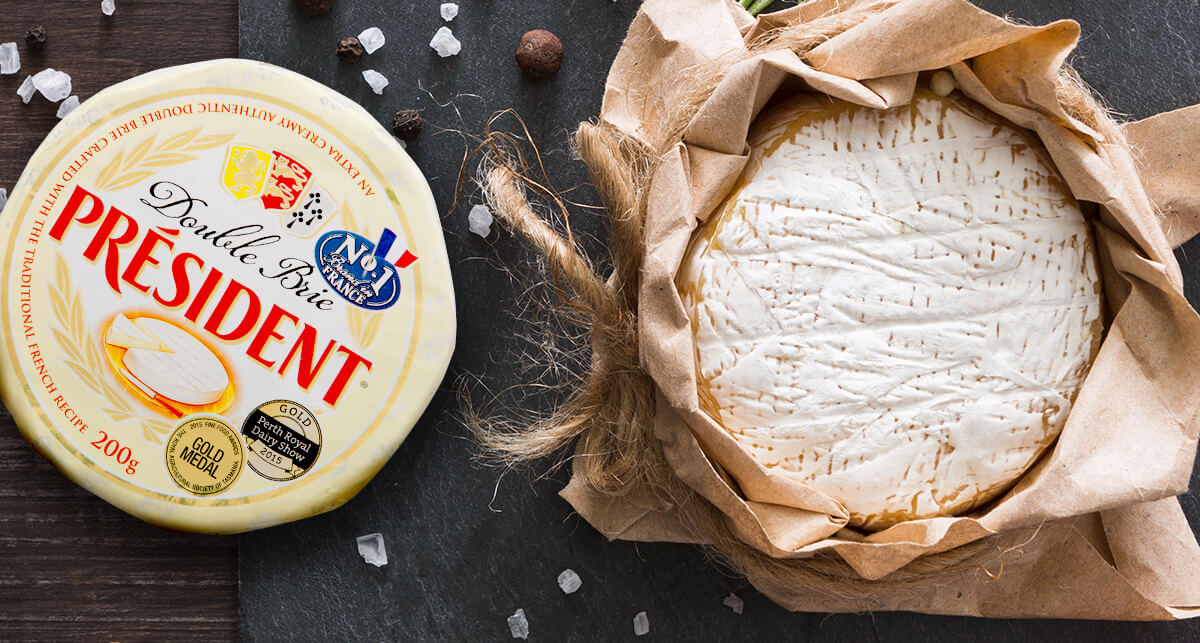Meet the Président Master Cheesemaker | Interview
An artisan cheesemaker is a little like a wine maker. It takes craft, skill and science to produce cheeses that are true to their kind.
Cheesemakers are the ones working behind the scenes to ensure only the most delicious products reach our tables. A cheesemaker’s knowledge of every aspect of their cheeses and their connection to their craft is quite unique, yet very little is known about these quiet achievers.
The art of cheesemaking is over 5,000 years old. Président, one of the world’s premiere cheesemakers, brings over 80 years of French artisanship and tradition to Australia.
Today, we’re introducing you to one of our very own Président Master Cheesemakers. An acclaimed cheesemaker from France, Anthony Neveu has produced award-winning cheeses and brings his European expertise to Australia. Making and maturing some of the finest cheese available, Anthony is just as passionate about making consistently outstanding cheeses to the traditional recipe today, as we were when we produced our first Camembert all those years ago.
Read on to learn about what inspired Anthony to become a cheesemaker, his tips for pairings and what makes a seriously good cheese.
1. Why did you decide to become a cheesemaker? What was it about the industry that appealed to you the most?
France is the country of cheese. It’s part of our heritage.
After graduate studies in biology, I worked for a major research institute in the dairy field. That’s where I realised my passion would be my career.
All these passionate people, this noble product…my curiosity was heightened and I wanted to know everything about cheesemaking.
So, I attended a cheese academy to develop my knowledge and then I was lucky enough to start my career with France’s #1 cheese brand, Président, where I’ve been for 14 years.
2. Please describe a typical work day for a Master Cheesemaker.
The day is organised by the rhythm of production and new projects but there are moments impossible to miss:
• Monitoring the production of cheese (to ensure that the quality of milk and curd will enable us to achieve our high quality benchmarks)
• The follow-up of the cheeses inside the ripening rooms to see and feel how our cheeses evolve and determine when cheeses are ready
• The tasting of our cheeses at different ages to ensure that our quality is constant
3. What makes a good cheesemaker?
You have to be passionate. You need to know how to listen to your cheeses whilst also being rigorous and methodical. A good cheesemaker is able to combine scientific and theoretical knowledge, practical experience, feeling and environment in order to craft the best cheese possible.
4. What is your favourite way to eat cheese?
After the main meal but before dessert, with French bread and salted butter!
5. What are some of the ingredients and tools you need to make a good cheese?
High quality milk (Australian milk is very good quality), selected ripening cultures, a clean environment and a passionate team (as is the case at Président!).
6. What are the biggest challenges about making cheese?
The consistency. The most difficult part is not making a good cheese, but doing it day after day, with the same level of high quality.
7. When it comes to pairing cheese with other ingredients to create the best tasting cheese boards, what are some useful tips?
Use several types of bread (white, multigrain, rye), fresh and dried fruits (grapes, apples, pears, figs) but avoid citrus fruit and other acidic fruit.
8. When experiencing a cheese tasting, is there a specific order to tasting different cheeses in terms of strength or flavour?
Yes, there is.
You have to start with the mildest cheese and finish with the strongest one. My advice is to always taste the blue cheeses after the soft cheeses.
9. If you have leftover cheese, what are your favourite recipes to use it in?
Tartiflette! It’s a French dish made with potatoes, reblochon cheese, lardons and onions. I often swap the reblochon cheese with the Président Double Brie and it’s so good!
10. What has been the most interesting cheese or pairing you’ve experienced?
For me, Camembert goes best not with wine, but a French cider (a Brut one). Try it!
Intrigued? You can discover more about the Président range here.

